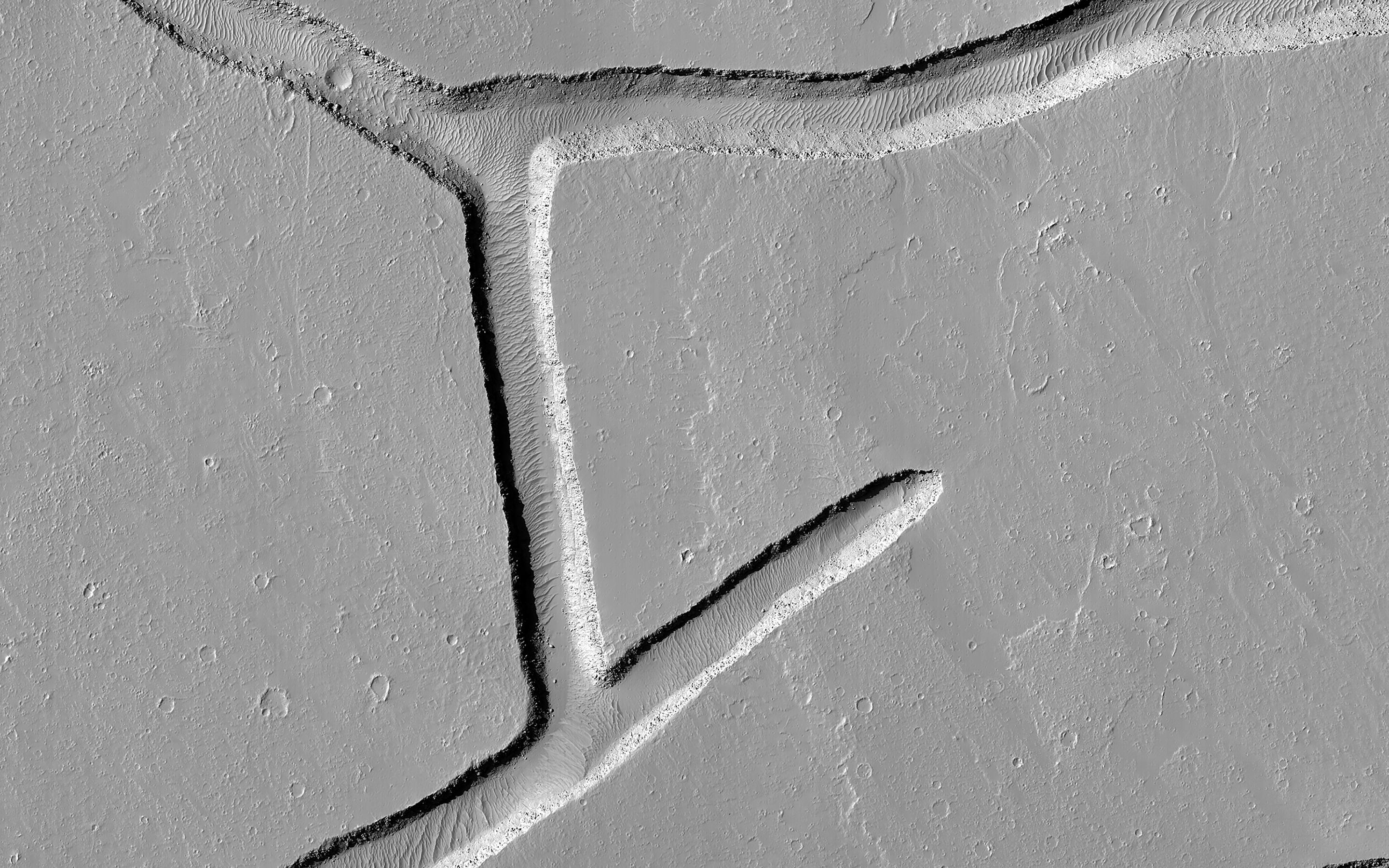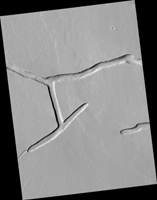
|
Intersecting Fractures
- Click the image above for a larger view
- Full-Res JPEG (2880 x 1800) (901.4 kB)
- Full-Res TIFF (2880 x 1800) (4.9 MB)
Caption:

Map Projected Browse Image
Click on image for larger version
These intersecting troughs, or fractures, cut across geologically young volcanic terrain in the Tharsis volcanic province. In many locations near where this image was taken, material has erupted from similar features.
However, it does not appear that material erupted from these particular fractures. Instead, they appear to crosscut material that flowed across the surface, indicating that the fractures are younger than the flows. The widths of the troughs at their rims are about 200 to 250 meters across.
This image is an example of how the surface can provide information about the processes happening in Mars' interior.
The map is projected here at a scale of 25 centimeters (9.8 inches) per pixel. (The original image scale is 27.6 centimeters [10.7 inches] per pixel [with 1 x 1 binning]; objects on the order of 83 centimeters [32.7 inches] across are resolved.) North is up.
Background Info:
The University of Arizona, in Tucson, operates HiRISE, which was built by Ball Aerospace & Technologies Corp., in Boulder, Colorado. NASA's Jet Propulsion Laboratory, a division of Caltech in Pasadena, California, manages the Mars Reconnaissance Orbiter Project for NASA's Science Mission Directorate, Washington.
Cataloging Keywords:
| Name | Value | Additional Values |
|---|---|---|
| Target | Mars | |
| System | ||
| Target Type | Planet | |
| Mission | Mars Reconnaissance Orbiter (MRO) | |
| Instrument Host | Mars Reconnaissance Orbiter | |
| Host Type | Orbiter | |
| Instrument | High Resolution Imaging Science Experiment (HiRISE) | |
| Detector | ||
| Extra Keywords | Color, Map, Volcano | |
| Acquisition Date | ||
| Release Date | 2021-08-20 | |
| Date in Caption | ||
| Image Credit | NASA/JPL-Caltech/University of Arizona | |
| Source | photojournal.jpl.nasa.gov/catalog/PIA24863 | |
| Identifier | PIA24863 | |
